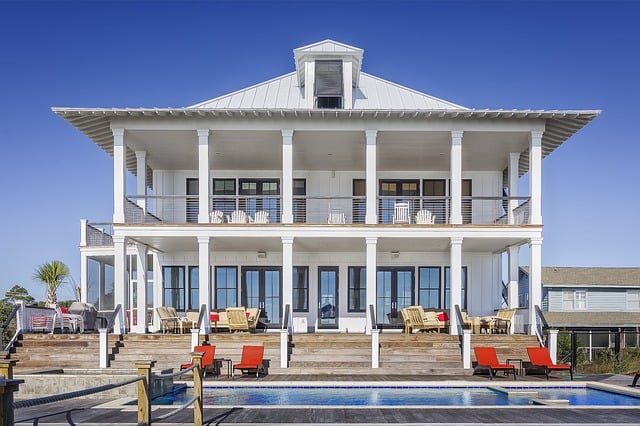
Spring cleaning does more than remove dirt and grime left over from winter. It also protects your house and reduces maintenance costs. So, try four spring cleaning tips this season as you cleanse your home.
1. Wash walls, windows and baseboards.
Often overlooked during weekly cleaning, the walls, windows and baseboards of your home harbor plenty of dirt and dust. Wash them at least once a year to ensure they look nice and to protect their finish.
*Move the furniture away from the walls, and wipe down the walls with a slightly damp cloth or magic eraser.
*The baseboards are also easy to wash off with a damp cloth. A toothbrush reaches into all the crevices.
*Use vinegar on the windows instead of glass cleaner to cut through accumulated dirt and prevent streaks.
2. Scrub the carpet.
Accumulated dirt, pet dander and odors can quickly ruin your carpets. Instead of merely running the vacuum each week, deep clean the carpets at least once a year. You can easily rent a carpet cleaner and do the job yourself or hire a professional cleaner as you prolong the life of your floors.
3. Care for furniture.
Modern or antique, your furniture will last longer when it’s free from dirt. Take time this spring to wipe off each piece from top to bottom. Use a soft cloth on wood to prevent scratches, and remember to spot treat dirty upholstery, flip the cushions and repair any tears or holes in the fabric.
4. Reduce clutter.
In addition to attracting pests and rodents, clutter reduces your ability to exit your home in an emergency. Commit to tossing or donating clutter like piles of books, excess furniture or anything you haven’t used in six months. Your home will thank you.
With these four spring cleaning tips, you’re able to reduce maintenance costs over time. So, look forward to protecting your home this season.
Read more

The craftsman’s motto, “measure twice, cut once” is a sort of microcosm of everything you need to know in order to bring projects in on time and under budget. Cutting corners, taking shortcuts, neglecting necessary expenses, that might help you save time and money in the short run, but best case scenario, it’s going to wind up costing you more in labor and budget to redo it later on. Worst case scenario, you build a faulty home that collapses in the first year, if it manages to pass inspection in the first place, and then nobody ever hires you again.
The first thing to go when people take shortcuts tends to be safety. A rush job makes for an unsafe work environment, and results in an unsafe living environment. No matter how much time and money you save on the job, it’s no good if you wind up paying it back in legal fees and time spent in the court room.
So how do you save time and money without taking dangerous shortcuts?
Be Pragmatic When Buying Tools And Materials
Simply put: there’s not much that a $200 hammer can do that a $10 hammer cannot. Don’t cut costs on quality, but shop around, and don’t overspend on fancy tools and materials that you don’t need.
Overestimate All Costs
If you promise your client that you’ll have the addition done in a week, and then a nasty thunderstorm hits on day seven, you’re going to wind up trying to finish up the roof in the middle of a heavy downpour. Promise a two week turnaround on the same project, and the client will be delighted to see the project finished six days early. Don’t make “best case scenario” promises. As they say, plan for the worst, hope for the best.
Pay A Little More For Experience When You Need To
A $12-a-hour lackey might be able to install a kitchen sink if you give him the whole weekend to do it. A $30-an-hour professional plumber might be able to get the same sink installed in an afternoon. Saving money often means spending a little more now so you can spend considerably less in the long run.
Don’t Over-commit Yourself
You’re going to burn through a lot of gas and a lot of daylight if you’re running three jobs at a time and driving all over town to get to them. If client #2 can’t wait a few days for you to finish up a job for client #1, they’re probably a pain in the neck to do business with anyways.
It all comes down to common sense, really: Pace yourself, set realistic goals, spend wisely, and always put safety first.
Read more

Property owners have a unique opportunity to efficiently rent out their entire home, a spare bedroom or other accommodation through the online service known as Airbnb. For travellers, Airbnb is convenient, web-based platform that provides affordable and flexible alternatives to hotels. For property owners, the tool easily connects various rental units with prospective occupants and makes collecting payments simple and secure.
Despite it’s convenience and the potential for profit, Airbnb is not without its risks for those who decide to list. Before renting out your home or spare room through Airbnb, keep in mind the following tips:
- Acquire the proper insurance.
Proper insurance is key to mitigating the risks associated with Airbnb. Take the time to review your renters or homeowners policy to make sure you have adequate coverage in place.
- Complete a home safety inspection.
Safety inspections can help Airbnb hosts address risks before they balloon into bigger issues. Before listing your property on Airbnb, complete a through home inspection and address all of the safety hazards you identify.
- Screen all guests.
Prior to allowing guests to stay in your home, it’s a good idea to check their background. To begin, ensure that prospective guests are verified through Airbnb. You can also review any connected social media accounts and read guest references through the site. Above all, trust your instincts.
- Set clear rules.
Through Airbnb, you can create guidelines for guests by completing the House Rules, Home Safety Card and House Manual sections of your profile. This allows you to set clear rules for guests around etiquette and safety.
- Establish occupancy limits.
Limiting the number of occupants that can use your property will help ensure that guests are comfortable and safe during their stay. Occupancy limits should take into account the size of the property and local regulations.
- Add a security deposit.
Adding a security deposit to your Airbnb listing can lessen the financial blow in the event of damaged property or another incident.
- Secure your valuables.
When you open your home to guests, there’s the potential that valuables could be damaged or stolen. To protect expensive items, consider moving them into a safety deposit box or to a secure off-site location.
- Protect sensitive information.
Your property isn’t the only thing you need to worry about when inviting guests into your home. To help prevent identity theft, make sure that guests cannot gain access to any files (physical or electronic) that contain sensitive personal information.
- Install smoke and carbon monoxide detectors.
Safety equipment like smoke and carbon monoxide detectors should be installed around the premises to protect guests and your property. Emergency exists should be property labeled as well.
- Child-proof your premises.
It’s likely that some of your guests will have children. To protect younger guests, take the time to properly child-proof your home.
- Keep your accommodations maintained.
Good housekeeping can help guests avoid common injuries such as slips and falls. Prior to each stay, examine your home for any new housekeeping issues that must be addressed.
- Provide contact information.
Always supply your guests with information sheets that indicate local emergency numbers and the nearest hospital. Provide a clear emergency contact number for yourself, as well as back up, for easy guest reference. Also make clear how you should be contacted if the guest has questions or issues arise.
- Supply a first-aid kit.
In addition to providing emergency contact information, having a first-aid kit readily available and fully stocked at all times is important to guest safety.
- Verify compliance with regulations.
Regulations around Airbnb hosting can differ depending on your location and the type of accommodation you are renting out. Double-check that you are compliant with local and state laws before using Airbnb.
- Notify those who could be impacted by your guests.
When you host guests through Airbnb, there is the potential that neighbors or roommates could be impacted. To avoid unnecessary conflict, let your neighbors or roommates know ahead of time that guests will be using your property.
Read more



